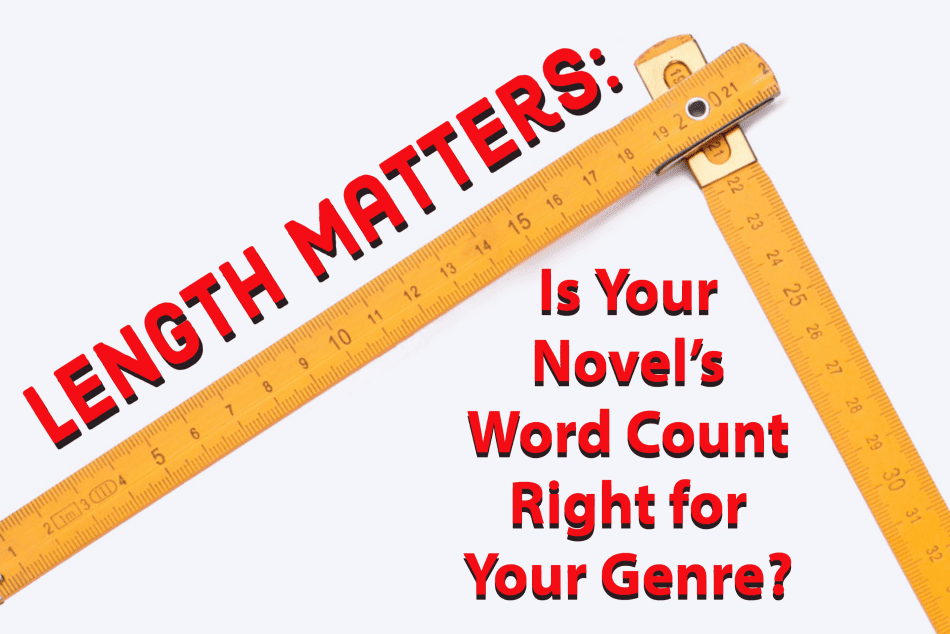Literary agent Paula Munier says a 90,000 word count is “the sweet spot for debut fiction.” Neither too long nor too short, this book length signals a novelist’s competency and knowledge of the publishing market to prospective agents and editors.
Of course, rules are made to be broken, especially in creative fields. (Isn’t that the point, man?) You may object that your 200,000-word saga is exactly as long as it needs to be. And you might be right. We all know of hugely ambitious epics published to great acclaim. Still, know that in a tremendously competitive marketplace, it will be tougher to sell your big book—to an agent, an editor, a publisher and, finally, to readers. A book with a huge word count presents a more perilous trek up a steeper hill.
Production costs and pricing may be far from your literary thoughts, but these are major concerns for book publishers.
With a track record to back them up, established writers have greater flexibility. Bestselling author Caleb Carr may write novels of 250,000 words, but when you pitch your novel and offer up that number, be prepared for a glacial reception.
A 90,000 word count signals to professionals that you know what you are doing. Steeper word counts may be off-putting; agents may assume you are undisciplined. They might jump to the conclusion that you and your novel are more trouble than they’re worth.
A writer’s work is never done
New authors sometimes expect that they will finish their book, send it off to an agent and publisher, then relax while awaiting well-deserved glory. Seasoned career authors know better.
Polishing and sending that draft is but the start of a long journey. Aside from publicity and promotion demands down this road, industry folks may still want you to cut, add on, revise or change editorial direction—perhaps even before writing up a contract.
Managing word count before submitting your work will speed up an already lengthy publication process.
Give ’em what they want
P.T. Barnum may have been vulgar and flashy but he was a brilliant reader of pop culture. With that in mind, Paula’s suggested 90,000 word count goal proves itself worthy again.
An agent and editor may really like your book but feel its 90,000-word is not ideal for one reason or another—for example, the length of popular competitive titles. Stay calm. In such cases, depending on what’s desired, it might not be too difficult for a writer to pivot up to 100,000 words, or down to 80,000.
Don’t groan. Flexibility is key to success.
What’s the expectation?
Readers of individual genres anticipate certain book lengths, and so do publishers. What follows is a rough guide to book length expectations in certain genres.
- Romance: 65,000–80,000 words (Most romance imprints have specific word count requirements that writers should know and observe before they submit.)
- Mystery: 80,000 words (Subgenres like cozies tend to be shorter, often coming in at 70,000–80,000 words.)
- Science fiction: 100,000–120,000 words
- Thriller: 90,000–100,000 words
- True Crime: 90,000–100,000 words
- Historical fiction: 100,000–150,000 words (This may depend on the topic and demands of the marketplace.)
- Mainstream women’s fiction: 90,000–100,000 words
- Memoir/Bio: 70,000–90,000 words
- Literary fiction: 80,000–100,000 words
- Young Adult: 70,000–80,000 words
- Middle Grade: 40,000–50,000 words
- Picture books: 500–700 words
Is your 60,000-word novel too short? Probably. Publishers hesistate to market and sell a slim hardcover book that doesn’t look like it should cost $25.
Do a market survey
Still in doubt about a desirable word count for your novel? Make a list of fifteen recently published comparative titles. (Collecting comp titles will prove useful to you throughout your novel’s journey—especially later, when trying to market your book.) Go to a bookstore and support your fellow authors by purchasing these books, or check them out of the library. Next, survey their lengths: 1 book page is approximately 250 words. 320 pages = 80,000 words.
How does your book measure compare to what’s succeeding in today’s marketplace? Using this exercise, you should end up with a good idea of book length expectations for a novel like yours.
Does fashioning fiction to market expectations bum you out or compromise literary ideals, or is it the sensible thing to do to get published? Share your thoughts with us on Facebook.





